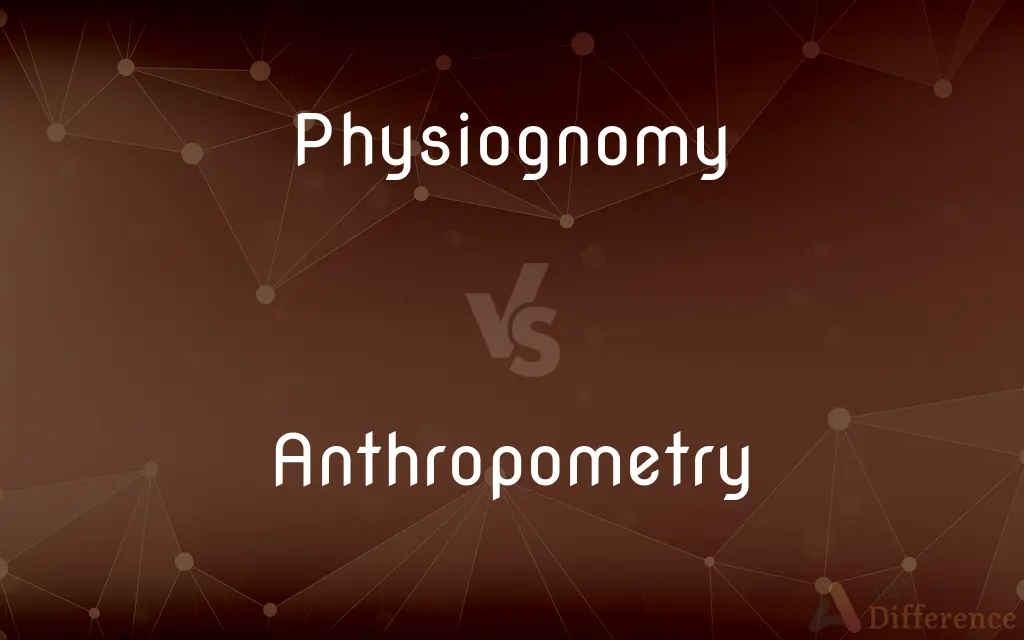Physiognomy vs. Anthropometry — What's the Difference?

Difference Between Physiognomy and Anthropometry
ADVERTISEMENT
Compare with Definitions
Physiognomy
Physiognomy (from the Greek φύσις, 'physis', meaning "nature", and 'gnomon', meaning "judge" or "interpreter") is the practice of assessing a person's character or personality from their outer appearance—especially the face. The term can also refer to the general appearance of a person, object, or terrain without reference to its implied characteristics—as in the physiognomy of an individual plant (see plant life-form) or of a plant community (see vegetation).
Anthropometry
Anthropometry (from Ancient Greek ἄνθρωπος (ánthrōpos) 'human', and μέτρον (métron) 'measure') refers to the measurement of the human individual. An early tool of physical anthropology, it has been used for identification, for the purposes of understanding human physical variation, in paleoanthropology and in various attempts to correlate physical with racial and psychological traits.
Physiognomy
Facial features.
Anthropometry
The study of human body measurement for use in anthropological classification and comparison.
Physiognomy
The art of judging human character from facial features.
ADVERTISEMENT
Anthropometry
The science of measuring the human body to ascertain the ranges and averages of dimensions of the human form, for various purposes including physical anthropology, epidemiology, the ergonomics of industrial design, and so on.
Physiognomy
Divination based on facial features.
Anthropometry
Measurement of the height and other dimensions of human beings, especially at different ages, or in different races, occupations, etc.
Physiognomy
Aspect and character of an inanimate or abstract entity
The physiognomy of New England.
Anthropometry
Measurement and study of the human body and its parts and capacities
Physiognomy
The art or pseudoscience of deducing the predominant temper and other characteristic qualities of the mind from the outward appearance, especially from the features of the face.
Physiognomy
The face or countenance, with respect to the temper of the mind; particular configuration, cast, or expression of countenance, as denoting character.
Physiognomy
The art of telling fortunes by inspection of the features.
Physiognomy
The general appearance or aspect of a thing, without reference to its scientific characteristics.
The physiognomy of a plant; of a meteor
Physiognomy
The art and science of discovering the predominant temper, and other characteristic qualities of the mind, by the outward appearance, especially by the features of the face.
Physiognomy
The face or countenance, with respect to the temper of the mind; particular configuration, cast, or expression of countenance, as denoting character.
Physiognomy
The art telling fortunes by inspection of the features.
Physiognomy
The general appearance or aspect of a thing, without reference to its scientific characteristics; as, the physiognomy of a plant, or of a meteor.
Physiognomy
The human face (`kisser' and `smiler' and `mug' are informal terms for `face' and `phiz' is British)
Share Your Discovery

Previous Comparison
Communism vs. Utilitarianism
Next Comparison
Bakery vs. Restaurant















































